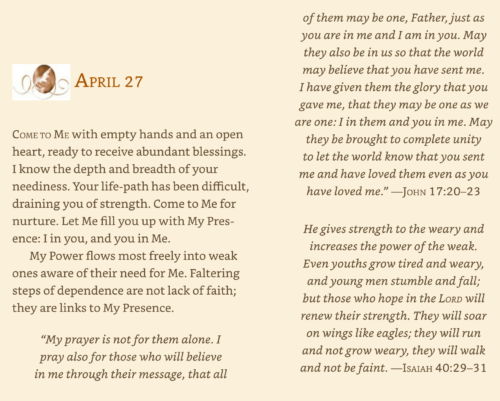When God Meets Us
Popular Christian author Rachel Held Evans (1981–2019) has an expansive understanding of how Christians, as the body of Christ, can celebrate the sacraments together:
Something about communion triggers our memory and helps us see things as they really are. Something about communion opens our eyes to Jesus at the table. . . .
“God works through life, through people, and through physical, tangible, and material reality to communicate [God’s] healing presence in our lives,” explains Robert E. Webber when describing the principle of sacrament. “God does not meet us outside of life in an esoteric manner. Rather, [God] meets us through life incidents, and particularly through the sacraments of the church. Sacrament, then, is a way of encountering the mystery.” [1]
This is the purpose of the sacraments, of the church—to help us see, to point to the bread and wine, the orchids and the food pantries, the post-funeral potlucks and the post-communion dance parties, and say: pay attention, this stuff matters; these things are holy. . . .
Enter one another’s joy, one another’s family, one another’s messes, one another’s suppers.
Evans also encourages us to recognize and celebrate the sacramental nature of Jesus’ ministry:
Indeed, the word sacrament is derived from a Latin phrase which means “to make holy.” When hit with the glint of love’s light, even ordinary things become holy. And when received with open hands in the spirit of eucharisteo, the signs and wonders of Jesus never cease. The 150-plus gallons of wine at Cana point to a generous God, a God who never runs out of holy things. This is the God who, much to the chagrin of Jonah, saved the rebellious city of Nineveh, the God who turned five loaves of bread and a couple of fish into a lunch to feed five thousand with baskets of leftovers to spare. This God is like a vineyard manager who pays a full day’s wage for just one hour of work, or like a shepherd who leaves his flock in search of a single lamb, or like a father who welcomes his prodigal son home with a robe, a ring, and a feast.
We have the choice, every day, to join in the revelry, to imbibe the sweet wine of undeserved grace, or to pout like Jonah, argue fairness like the vineyard employees, resent our own family like the prodigal’s older brother. At its best, the church administers the sacraments by feeding, healing, forgiving, comforting, and welcoming home the people God loves. At its worst, the church withholds the sacraments in an attempt to lock God in a theology, a list of rules, a doctrinal statement, a building.
But our God is in the business of transforming ordinary things into holy things, scraps of food into feasts and empty purification vessels into fountains of fine wine. This God knows his way around the world, so there’s no need to fear. . . . There’s always enough—just taste and see. There’s always and ever enough.
